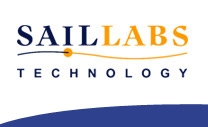 Sail Labs Technology AG is a leading global provider of speech recognition technology and was founded in 1999 in Vienna, Austria. We are one of the world’s leading innovators in the field of Open Source Intelligence (OSINT) and speech and language technology systems, creating cutting-edge software for speech and multimedia analysis solutions. SAIL Labs develops technologies to mine multi-media data and text including the indexing of audio, video and text, automatic speech recognition, transcriptions in multiple languages, named entity detection as well as topic detection. Our solutions allow content based search in multi-media files, automatic summarization and visualization. SAIL LABS Technology supports commercial applications (e.g., news monitoring, broadcast news transcription and indexing) as well as government applications (e.g., public opinion monitoring, surveillance and intelligence gathering).
Sail Labs Technology AG is a leading global provider of speech recognition technology and was founded in 1999 in Vienna, Austria. We are one of the world’s leading innovators in the field of Open Source Intelligence (OSINT) and speech and language technology systems, creating cutting-edge software for speech and multimedia analysis solutions. SAIL Labs develops technologies to mine multi-media data and text including the indexing of audio, video and text, automatic speech recognition, transcriptions in multiple languages, named entity detection as well as topic detection. Our solutions allow content based search in multi-media files, automatic summarization and visualization. SAIL LABS Technology supports commercial applications (e.g., news monitoring, broadcast news transcription and indexing) as well as government applications (e.g., public opinion monitoring, surveillance and intelligence gathering).
If you are a news junkie, digital native, easily excited by cool technology, love to travel and can sell products to various customers, then this job is for you!
We are looking for a
Junior Sales [PDF]
We offer a flexible, demanding, interesting and fun working environment. Our clients are located all across the globe (primarily Europe, Asia, Africa and Middle East) and are primarily large corporations, media outlets and government entities. The job is demanding, but at the same time offers a lot of variety and yields high tangible as well as non tangible rewards.
Requirements
- Self organized
- Preferred age between 22 and 30
- Some form of higher education (does not need to be completed yet)
- Experience in Sales, preferably in software or technology sales
- Technology savvy
- Fluency in English and at least one of the following: Spanish, Italian, French, Russian, Arabic or Portuguese
- Discretion and absolute integrity
- Willingness to travel up to 50% of the time
- EU citizenship
We offer
- Flexible working time, central working location (Vienna, 9th district)
- Application and customer oriented projects
- Young, ambitious team, humor and internationality
- Basic wage according to the Austrian collective bargaining agreement is at least a monthly salary of 2.173€ per month plus a very attractive commission system
We look forward to receiving your application via e-mail to recruitment@sail-labs.com
SAIL LABS Technology AG is an equal opportunity employer. Male and female applications are welcome.
SAIL LABS Technology AG Mariannengasse 14, 1090 Wien Tel +43 1 580 95-0 www.sail-labs.com



